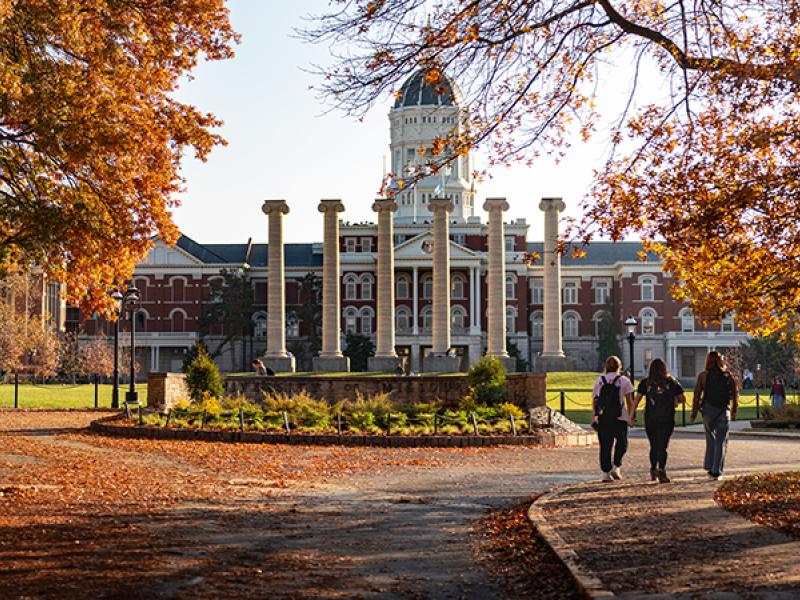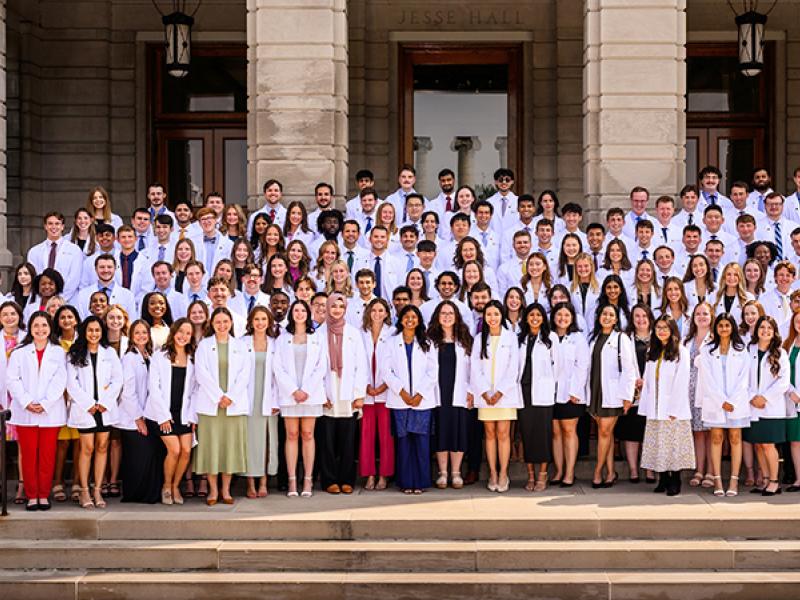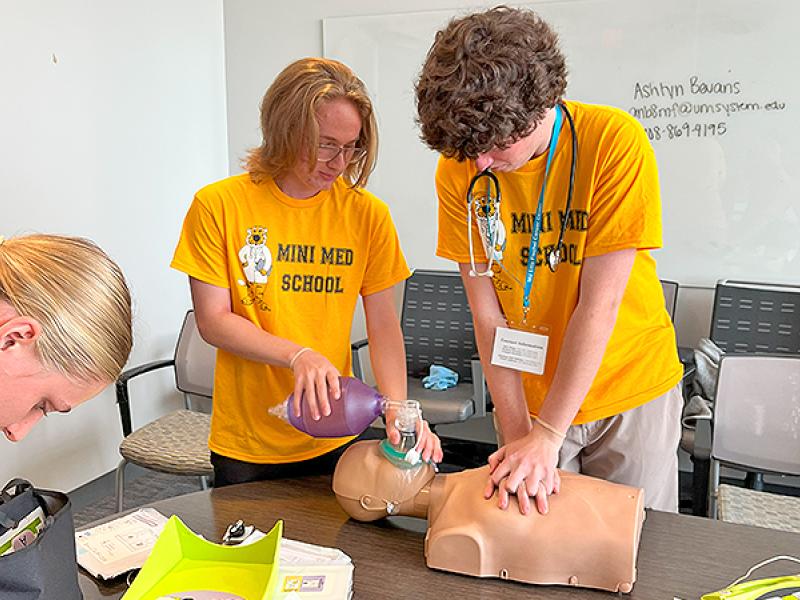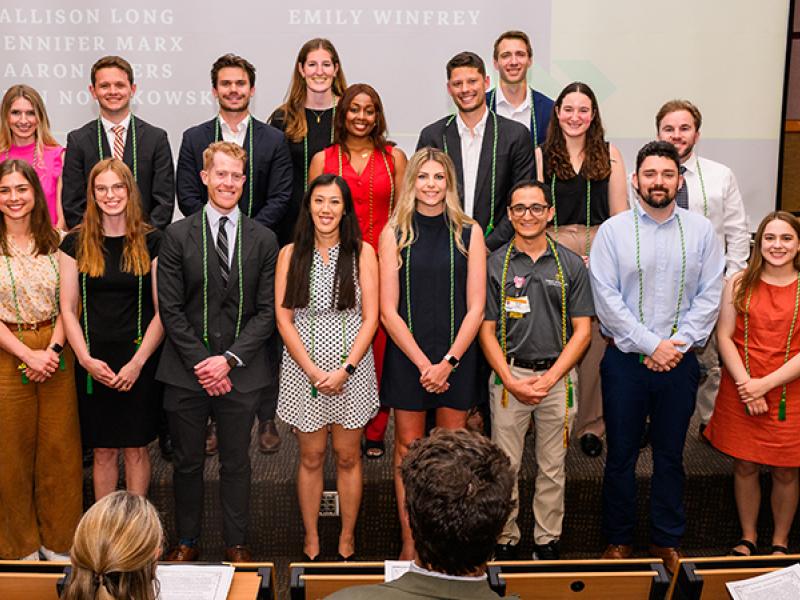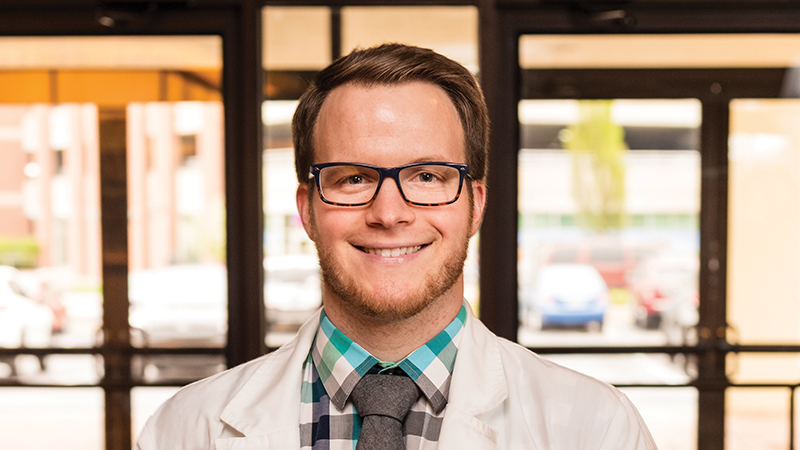
The inspiration to become a doctor is different for every medical student. We asked four students what drew them to medicine. Here is one of their stories.
If Kyle Warren had to pinpoint why he decided to pursue a career in medicine, it was the glowing mudpuppy.
In physiology class during his junior year at Truman State University, Warren injected dark blue and florescent green dyes into a mudpuppy — a species of salamander — and then watched in wonder. The bigger blue dye molecules stayed in the capillaries, and the smaller green dye molecules filtered through to the kidney tubules, lighting up the inner workings of the animal.
“You could see the outlines of these little capsules of blood vessels in their kidneys that form a permeable net, and that’s how they filter blood,” Warren said. “I was able to visualize these structures working. I was just blown away by how cool it was. I know that sounds like a strange way to initially be pulled into medicine, but I wanted to keep learning and wanted to see how the science applied to humans.”
Warren is now entering his fourth year at the University of Missouri School of Medicine. He came for the science, but he stayed for the relationships.
“My attitude has changed since getting into the medical school,” said Warren, a native of Farmington, Missouri, who is finishing his degree at MU’s Springfield Clinical Campus. “I continue to be blown away by the science, but I’ve become more interested in some of the more personal or humanistic aspects of medicine.”
His desire to understand patients and find solutions that work for them is best illustrated by a project he started after serving as the student leader of a medical mission trip to Guatemala in 2018. Dirty water is a serious health risk in Guatemala.
“I was listening to an audio book called ‘Better’ by Atul Gawande, and he was talking about a study done by a Stanford doctor,” Warren said. “The basic conclusion was, if you wash your hands with soap, even if you’re using dirty water and dirty towels to dry your hands on, evidence still supports the fact you can reduce the incidence of diarrheal and respiratory illnesses in children.
“There are interventions you can do to clean water, like iodine tablets, but because of cultural beliefs, a lot of indigenous people do not want to adulterate their water. I thought: ‘Wow, this really gets around that. We don’t have to clean their water and can still have a positive impact on their health.’ ”
Warren helped create a hand-washing protocol script that nurses at the ASELSI Father’s Heart Medical Clinic in Chichicastenango could use when talking to patients. The nurses give patients a five-question survey about hand-washing before explaining the protocol. They survey the patients again at a follow-up visit to see if they remembered the information.
It’s a simple way to address a serious problem, and it’s a solution born of empathy.
That glowing mudpuppy got Warren started, but what has carried him through medical school is a passion to make connections with people and improve their lives.
“It finally dawned on me that I can know every aspect of the science, make the right diagnosis every single time and know the perfect prescription regimen, but if I can’t relate to my patients and get them to buy in to their own health, then it doesn’t matter,” Warren said. “It’s these relationships in medicine that I’m most interested in now.”
Article Spotlight
Read more stories from MU Medicine Magazine Summer 2019


